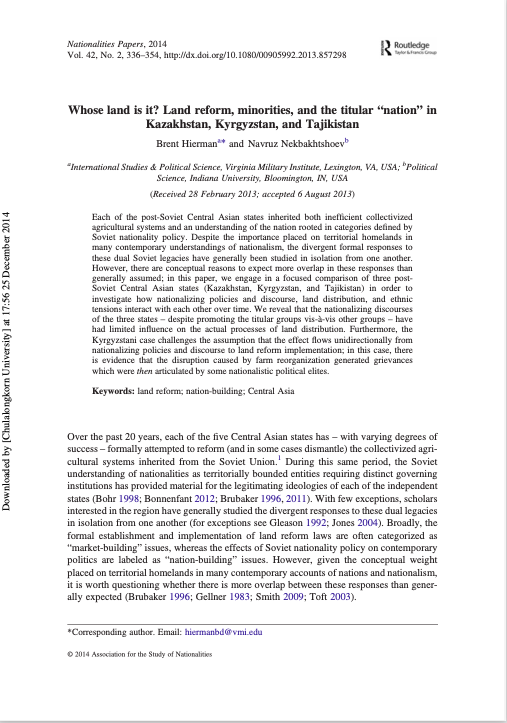Resource information
Each of the post-Soviet Central Asian states inherited both inefficient collectivized agricultural systems and an understanding of the nation rooted in categories defined by Soviet nationality policy. Despite the importance placed on territorial homelands in many contemporary understandings of nationalism, the divergent formal responses to these dual Soviet legacies have generally been studied in isolation from one another. However, there are conceptual reasons to expect more overlap in these responses than generally assumed; in this paper, we engage in a focused comparison of three post- Soviet Central Asian states (Kazakhstan, Kyrgyzstan, and Tajikistan) in order to investigate how nationalizing policies and discourse, land distribution, and ethnic tensions interact with each other over time. We reveal that the nationalizing discourses of the three states – despite promoting the titular groups vis-à-vis other groups – have had limited influence on the actual processes of land distribution. Furthermore, the Kyrgyzstani case challenges the assumption that the effect flows unidirectionally from nationalizing policies and discourse to land reform implementation; in this case, there is evidence that the disruption caused by farm reorganization generated grievances which were then articulated by some nationalistic political elites.

